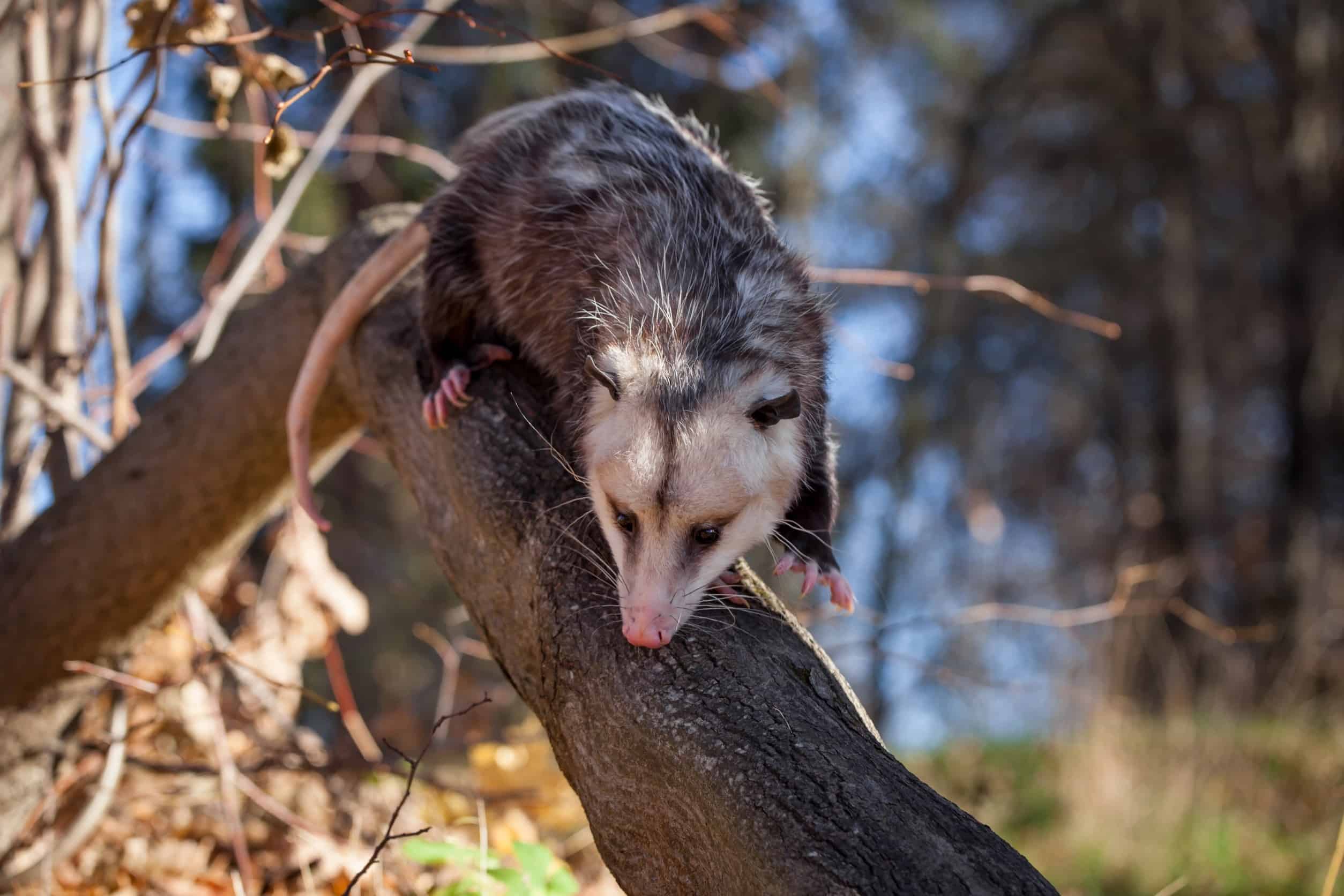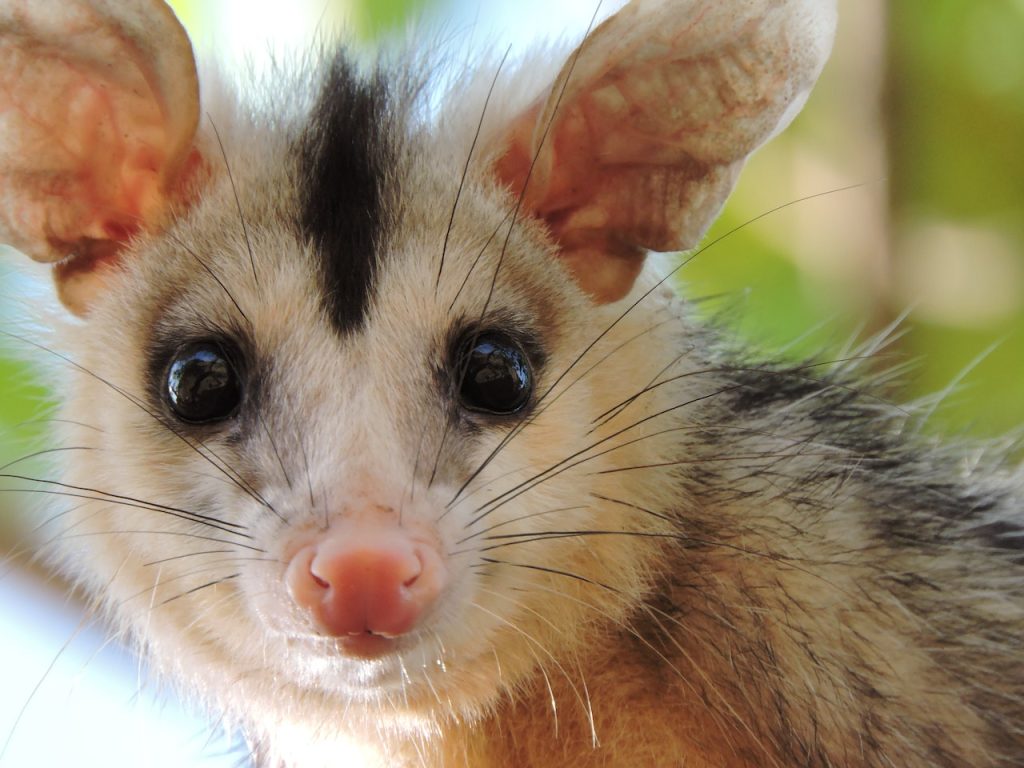While it is not as popular as hunting other game animals, opossum hunting is still practiced in some parts of the world, including the United States.
In some rural areas, opossums are hunted or trapped for their fur. But it is more commonly done as a means of pest control since they often try to raid gardens and trash cans.
However, for hunters who do not like to waste anything, opossums can be a delicious treat when prepared properly.
They are not typically hunted as a source of food these days, especially because they tend to scavenge human trash and carry infectious diseases in urban areas.
But if you know what to do and how to cook them correctly, they can be a great source of sustainable protein and nutrients out in the wild.
Whether you’re an adventurous eater or just curious about the idea of eating the opossum you just hunted or trapped, this article will have every piece of information you need to weigh its risks and benefits and make an informed decision.
Nutritional Value of Opossum Meat
Many people consider opossum meat dirty, and for a good reason. But when it is prepared and cooked properly, it can be a great source of nutrition, especially in places where food sources may be limited.
According to the USDA, a 100-gram serving of cooked opossum meat contains 27 grams of protein, which is comparable to the 28 grams of protein in one serving of chicken.
It is low in fat as well, which includes vitamins and minerals such as iron, zinc, and vitamin B12, making it a healthy addition to a balanced diet.
Some hunters say that the taste of opossums resembles dark meat like venison and duck. So with the right techniques and seasoning, it can be a delicious alternative to more traditional types of meat.
The Risks of Hunting and Eating Opossums

While opossums are sighted in many parts of the United States, not all of them can be hunted or consumed as they can pose a risk to your health. Below are the risks that you have to keep in mind before you try to cook and eat them:
1. Disease Transmission
At a glance, opossums appear to be cute, medium-sized animals that care for their young and eat fruits. But they are omnivores that eat whatever worms, insects, and even dead animals they find in their habitat.
Since they tend to eat rotten flesh and come into contact with feces, wild opossums can carry a range of diseases, such as tuberculosis and toxoplasmosis.
When ingested by unknowing people, the potentially deadly bacteria and viruses found in opossum flesh can be transmitted to humans and lead to hospitalization.
2. Parasites
In addition to bacterial infections, opossums can also carry parasites such as fleas and ticks. So if their carcass is not properly handled, they can transmit Lyme disease and Rocky Mountain spotted fever.
3. Contamination
Since opossums are scavengers that commonly go through piles of trash to find food, their skins and innards may also be exposed to harmful toxins and chemicals.
So consuming them without the proper knowledge of how to prepare them can lead to various health complications for you in the long run.
4. Difficulty in Preparation
Aside from the exposure to various diseases that you have to keep in mind, opossum meat also tends to be more tough and chewy.
So not only do you have to take your time and thoroughly remove all contaminants and innards, but you also have to cut off most of the hard fat just so it remains safe and edible.
5. Legality
Not all places in the US allow you to hunt opossums. But if you have the proper permits in states such as Virginia, Alabama, and Mississippi, you should be good to go.
Just remember to check local regulations in your area and always follow the guidelines and requirements set by the state wildlife agency before you proceed to hunt them.
Preparing and Cooking Opossum Meat
Eating opossums has its risks and benefits, but with careful attention and the right techniques, you can lessen the chances of something going wrong. Here are the steps and recommendations you have to follow to cook opossums properly and ensure your safety:
1. Butcher the Meat
The first thing you have to do is ensure that the carcass is butchered thoroughly to prevent the spread of diseases. So you have to dress and clean the opossum meat as soon as possible after the kill.
The first thing you have to do is remove the head and let the blood drain for a while. The former will make the skinning process easier, and the latter will minimize the risk of foodborne illnesses because blood can carry bacteria.
Afterward, remove its skin and all of its furs using a sharp knife. Alternatively, you can also use boiling water to scald the skin and loosen all the fur so you can scrape it off more easily.
Then you can proceed to remove the entrails and trim all of the fat. Just make sure not to damage the guts, or else its contents may contaminate the rest of the meat.
Lastly, cut it into small portions so it becomes tender and easier to cook.
However, if you haven’t tried this before or are just not accustomed to preparing game meat, it is safer to go to your local butchery and ask them to do it for you instead.
2. Cleaning the Meat
If your opossum has been butchered properly, then the chances of contracting illnesses through its consumption have been lessened.
But to be sure, proceed to soak the opossum meat you hunted or bought from a local butcher in a solution of water, vinegar, and salt for a few hours.
For best results, it is recommended that you leave it soaked overnight.
This step will kill off any remaining bacteria in the meat and remove any gaminess and odors that may still be present after butchering.
3. Cooking the Meat
Finally, you can now proceed to marinate the meat using seasonings of your own choice. Let it sit for at least an hour so it can absorb more flavor and become more tender.
Cook the meat slowly over low heat until its temperature reaches at least 165°F (74°C).
Final Thoughts
In conclusion, opossum meat can be a nutritious and flavorful addition to your diet, but it also comes with risks that should not be taken lightly.
Opossums can carry various diseases and parasites that can be harmful to humans, so it is essential to take proper precautions when hunting, cleaning, and cooking their meat.
However, for those who are willing to take on the challenge, opossum meat can be a source of high-quality protein and nutrients. With the right techniques and seasonings, it can be prepared into delicious dishes that are comparable to dark meat like venison or duck.
Just make sure to check local regulations and obtain proper permits before hunting and consuming opossum meat.

